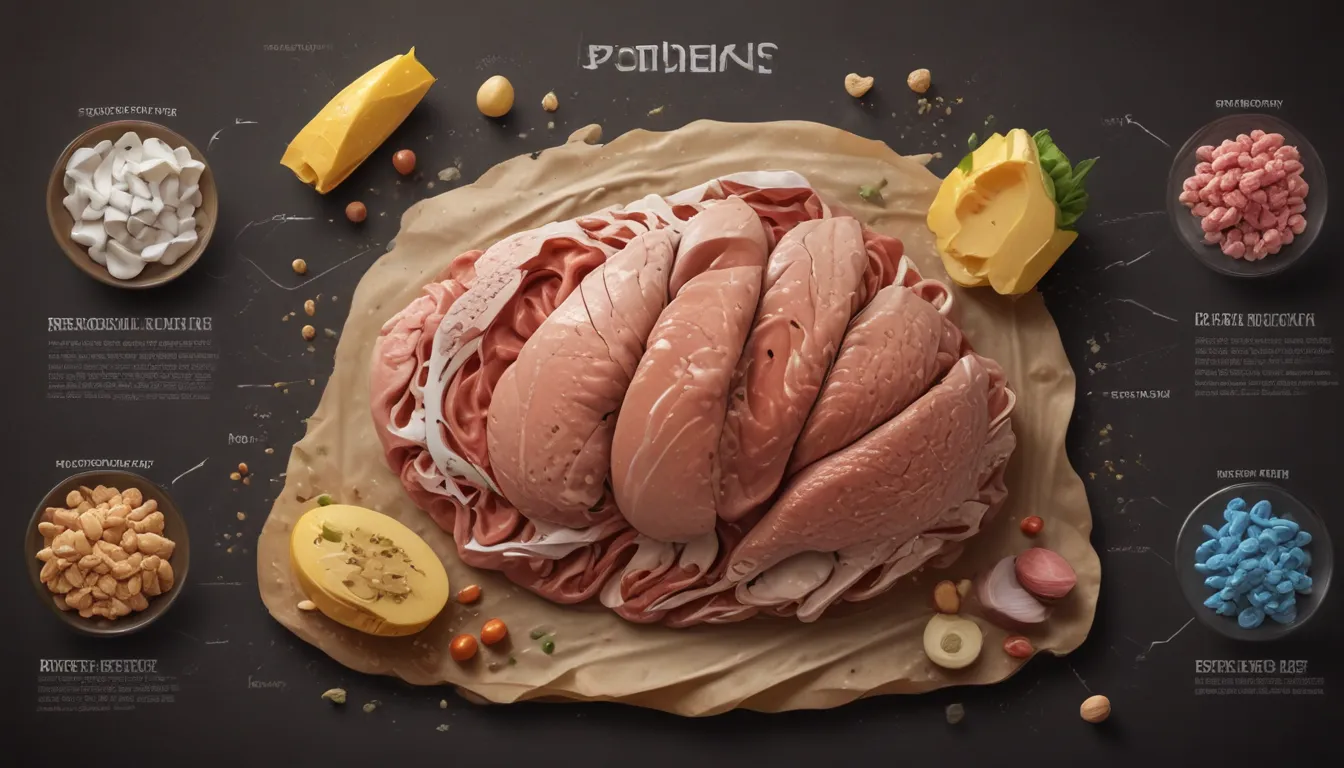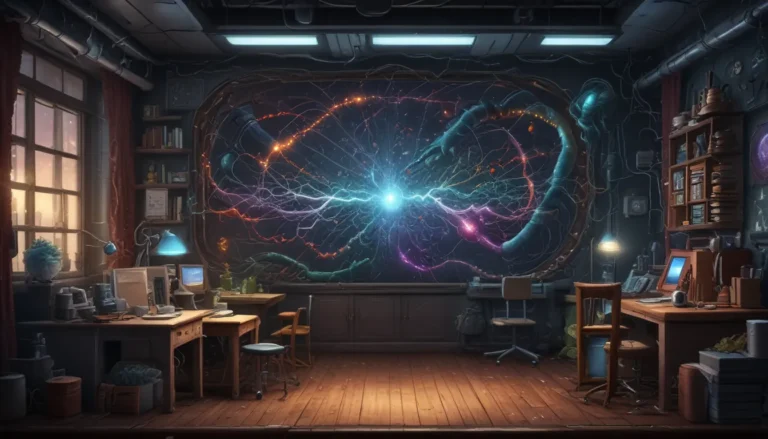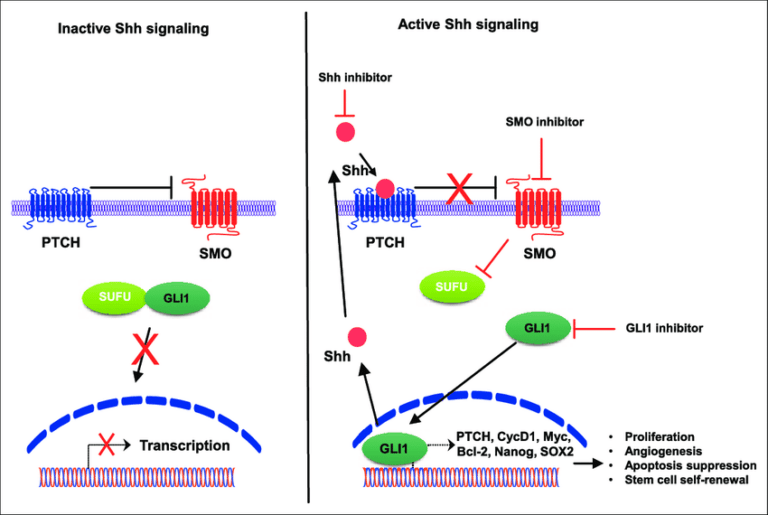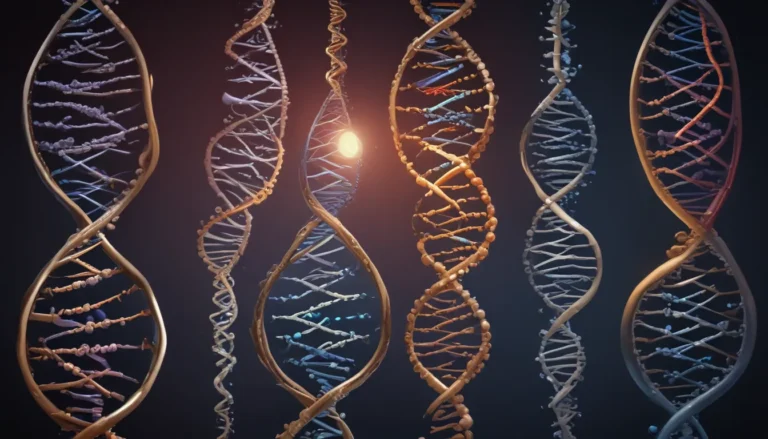A Note About Images: The images used in our articles are for illustration purposes only and may not exactly match the content. They are meant to engage readers, but the text should be relied upon for accurate information.
Welcome to the captivating world of protein function, where molecules work tirelessly behind the scenes to keep our bodies functioning at their best. Proteins are the superheroes of the biological realm, with roles spanning from building cells to defending against foreign invaders. Join us as we uncover 17 fascinating facts about the diverse functions proteins serve in our bodies, shedding light on their essential contributions to our health and well-being. Let’s delve into the intricate details of protein function and unravel the mysteries of these remarkable molecules.
Unraveling the Mysteries of Proteins
Proteins are the fundamental building blocks of life, essential macromolecules that form the basic structure of cells and tissues. Composed of long chains of amino acids meticulously folded into complex three-dimensional structures, proteins play a vital role in nearly every aspect of cell function. From catalyzing biochemical reactions to providing structural support, transport, and communication, proteins are the backbone of biological systems.
The Marvel of Enzymes: Catalysts of Life
Enzymes, specialized proteins, are the catalysts that drive essential chemical reactions within cells. These molecular workhorses speed up reactions by lowering the activation energy required for a process to occur, ensuring that important processes take place efficiently. Enzymes are the unsung heroes behind the scenes, orchestrating a symphony of biochemical reactions that keep our bodies running smoothly.
Guardians of Gene Expression: The Role of Transcription Factors
Transcription factors, a type of protein, wield the power to regulate gene expression by binding to specific DNA sequences and influencing the transcription of genes into messenger RNA (mRNA). These molecular gatekeepers play a crucial role in determining which genes are activated and expressed, shaping the intricate dance of protein synthesis within cells.
Sentinel Proteins: The Mighty Antibodies
Antibodies, the defenders of our immune system, are proteins that recognize and bind to foreign invaders known as antigens. By marking these intruders for destruction by other immune cells, antibodies play a critical role in safeguarding our bodies against infections and diseases. These molecular warriors stand ready to protect our health and well-being at all costs.
The Architects of Structure: Collagen and Keratin
Structural proteins such as collagen and keratin provide the foundation for cells and tissues, imparting strength and elasticity to our bodies. From the framework of bones to the resilience of tendons and connective tissues, these architectural proteins form the structural scaffolding that supports the intricate tapestry of life.
Dance of the Molecular Machines: Actin and Myosin
Actin and myosin, the dynamic duo of muscle contraction, collaborate to generate the force needed for movement. These proteins intricately interact with each other to orchestrate the intricate dance of muscle contractions, enabling us to perform a variety of physical activities with grace and precision.
Oxygen Couriers: The Marvel of Hemoglobin
Hemoglobin, the oxygen-carrying protein found in red blood cells, serves as the transport vehicle for oxygen throughout our bodies. By binding oxygen in the lungs and ferrying it to tissues in need, hemoglobin ensures the efficient delivery of this vital gas to sustain cellular functions and metabolic processes.
Signaling Pioneers: The Role of Proteins in Cell Communication
Cell signaling pathways rely on proteins to transmit messages and coordinate cellular activities. Protein receptors on cell surfaces act as molecular antennas, recognizing specific chemical signals and orchestrating a symphony of responses within cells. These signaling proteins play a pivotal role in regulating various physiological processes and maintaining cellular homeostasis.
Gatekeepers of the Cell: Protein Channels
Protein channels embedded in cell membranes act as gatekeepers, facilitating the passage of ions and molecules across cellular barriers. This intricate network of channels regulates essential processes such as nutrient uptake and waste removal, ensuring the smooth operation of cellular functions.
Molecular Guardians: Chaperone Proteins
Chaperone proteins serve as molecular guardians, guiding other proteins through the complex process of folding into their functional shapes. By preventing misfolding and promoting proper assembly, chaperones play a critical role in ensuring the structural integrity and functionality of newly synthesized proteins.
Conductors of the Immune Symphony: Cytokines and Chemokines
Cytokines and chemokines, signaling proteins produced by immune cells, orchestrate the immune response by attracting immune cells to sites of infection or inflammation. These molecular conductors play a pivotal role in regulating the immune system’s response to pathogens and foreign invaders, safeguarding our bodies against threats to health and well-being.
Hormonal Maestros: Endocrine Proteins
Endocrine hormones such as insulin and growth hormone are protein messengers that regulate various physiological processes, including metabolism, growth, and reproduction. These hormonal maestros play a key role in maintaining hormonal balance and coordinating essential bodily functions.
Cellular Transporters: Motor Proteins
Motor proteins such as kinesin and dynein act as molecular transporters, shuttling cellular cargo along microtubules to facilitate intracellular movement and organization. By powering cellular locomotion and positioning cell structures, motor proteins play a vital role in maintaining cellular structure and function.
Custodians of the Genetic Code: Proteins in DNA Replication and Repair
Proteins involved in DNA replication and repair safeguard the integrity of the genetic material, ensuring accurate transmission of genetic information. These molecular custodians recognize and correct errors in DNA sequences, preventing mutations that can lead to genetic disorders and diseases.
Neural Messengers: Proteins as Neurotransmitters
Neurotransmitters such as dopamine and serotonin act as signaling molecules that transmit information between nerve cells. These protein-based messengers play a pivotal role in regulating mood, behavior, and cognitive function, influencing a wide array of physiological and psychological processes.
The Artistry of Protein Folding: A Complex Symphony
The intricate process of protein folding is a masterpiece of molecular artistry, ensuring that proteins assume their functional shapes and perform their intended roles. Errors in protein folding can result in diseases such as Alzheimer’s and Parkinson’s, underscoring the importance of proper protein folding in maintaining cellular health and function.
Unlocking the Potential: Post-Translational Modifications
Post-translational modifications such as phosphorylation and glycosylation add a layer of complexity to protein function, altering their structure and function in response to cellular signals. These modifications provide additional regulatory control, fine-tuning protein activities and expanding the repertoire of functional diversity.
Proteins: The Workhorses of Life
In conclusion, proteins are the unsung heroes of the biological world, playing a myriad of essential roles in maintaining the health and well-being of all living organisms. From enzyme activity to immune defense, muscle contraction, and cell signaling, proteins are the versatile molecular machines that keep life running smoothly. By unraveling the fascinating facts about protein function, we gain a deeper appreciation for the complexity and elegance of the biological world. Each protein serves as a testament to the marvels of molecular biology and the intricate web of interactions that sustain life itself.
FAQs: Dive Deeper into the World of Proteins
Q: What is the primary function of proteins?
A: Proteins have diverse functions, including enzyme activity, immune defense, structural support, and muscle contraction, depending on their composition and structure.
Q: How do proteins carry out enzyme activity?
A: Proteins act as catalysts in biochemical reactions, accelerating the conversion of substrates into products by lowering the activation energy required for the process to occur.
Q: Can the absence of certain proteins lead to health disorders?
A: Yes, the absence or malfunctioning of specific proteins can contribute to various health disorders. Genetic diseases like cystic fibrosis and muscular dystrophy are examples of conditions resulting from protein deficiencies.
Q: Are all dietary proteins equally important for human nutrition?
A: Different dietary proteins vary in their essential amino acid content. A balanced and diverse protein intake is crucial to ensure the body receives all necessary amino acids for growth and development.
Unveiling the Intricacies of Protein Function
Proteins’ fascinating functions merely scratch the surface of their complexity. Quaternary structure and post-translational modifications add layers of intrigue to the intricate world of proteins. As we continue to explore the captivating realm of protein function, we unlock a treasure trove of possibilities and discoveries. Join us on this journey of scientific exploration and uncover the secrets hidden within the molecular landscape of proteins. Let’s unravel the mysteries and marvels of protein function together!






